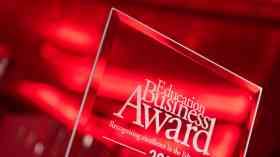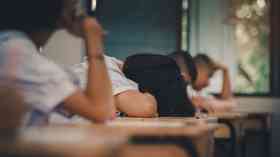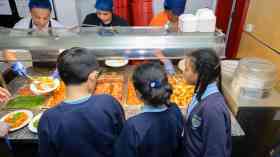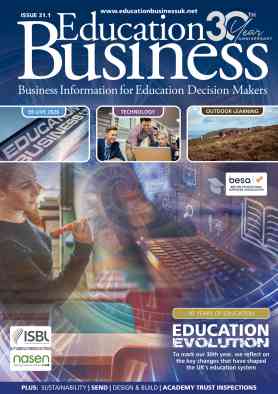Setting a challenge to the arts
 Arts and culture matter to all of us. They bring us joy, let us reflect and help us empathise. They’re really important to our society too – boosting the economy, revitalising communities and increasing health and well-being. The culture sector is worth £7.7bn to the UK economy, employs over 100,000 people and creates one in 20 jobs. It drives international trade, fuels our booming creative industries and attracts millions of tourists each year, all for just 0.1 per cent of government spending.
Arts and culture matter to all of us. They bring us joy, let us reflect and help us empathise. They’re really important to our society too – boosting the economy, revitalising communities and increasing health and well-being. The culture sector is worth £7.7bn to the UK economy, employs over 100,000 people and creates one in 20 jobs. It drives international trade, fuels our booming creative industries and attracts millions of tourists each year, all for just 0.1 per cent of government spending.
We can also use arts and culture to tackle our society’s greatest challenges. As pressure increases on the NHS, healthcare providers can increasingly make use of arts-based projects to potentially save the NHS up to £500million. Without arts and culture, public life in this country would be much poorer. As watchers and visitors, artists and producers, curators and entrepreneurs, policy makers and investors, we all benefit from this incredible national resource.
A right not a privilege
At the Arts Council, we believe that every child has the right to take part in this country’s rich cultural life. One of our goals, as part of our mission to achieve great art and culture for everyone, is to ensure all children and young people have the opportunity to experience the richness of arts, museums and libraries.
Every child should be able to create, compose and perform their own art. They should have the chance to visit, experience and participate in extraordinary work, and be able to explore, understand and review the experiences they’ve had. Arts and culture bring huge benefits to young people: studying creative subjects triples the chance children from low income backgrounds will get a degree, whilst taking up a musical instrument improves attainment across all core subjects.
As a country, we have always supported exceptional talent in science, industry and the arts. No child should miss out on the opportunities, pleasures and life-changing skills that the arts and culture can bring. Wherever children start in life, a cultural education should be a right, not a privilege.
So where are we now? Cultural education in England is delivered by a range of partners, including the Arts Council, as the national development agency for the arts, as well as schools, local authorities, publicly-funded arts organisations, Bridges, and Higher Education institutions.
Music education HUBS
In 2010 and 2012, the government published two independent reports authored by the now chief executive of Arts Council England, Darren Henley, on music and cultural education. They identified a number of strengths in existing provision and the passion providers had for ensuring all children accessed great arts and culture. In summary, the recommendations provided in the Review were for an improved national cultural infrastructure and more developed local delivery.
Over the past three years, the Arts Council and its partners have worked hard to help address the recommendations. Music Education Hubs were founded to deliver clear leadership and bring together all local music education providers and opportunities to ensure that every child has the opportunity to engage and progress across musical genres. There are now 123 Music Education Hubs across the country, funded by the Department for Education, with 84 per cent of schools reporting to work with their local hub.
Music Education Hubs act as drivers of partnerships in local areas and offer clear leadership, bringing together all local providers, schools and teachers in developing opportunities to ensure a strong music education landscape in their area. Hubs work to identify areas of least engagement and ensure diversity, as well as enhancing the quality of provision in their area.
Collaboration across hubs has helped to strengthen music provisions. In North London, eight Music Education Hubs have come together to form Music8, sharing resources, opportunities and ideas. By pursuing funding opportunities as a combined group, they also represent a wider geographic area which can prove more attractive to potential investors. Meanwhile, Barnet, Enfield and Haringey hubs are working with Arts Council-funded Musiko Musika to establish multi-cultural community youth ensembles in each location.
Hubs also target gaps in provision for disadvantaged young people. Ealing Music Education Hub’s ‘Reaching Out’ programme, for children from Gypsy, Roma and Traveller communities who would otherwise have little or no access to cultural education, has been so successful that the model will be used with other hard to reach groups.
Our survey from the academic year 2013/14, showed that hubs worked with 88 per cent of all state-funded primary schools in England, and 78 per cent of all state-funded secondary schools in England - both increases on previous years. We also know that 596,820 pupils received at least one term of whole class ensemble teaching, and 715,955 pupils regularly attended at least one instrumental ensemble or choir – an increase of nearly one hundred thousand pupils since 2012/13.
We hope that hubs and schools will work together to determine what the needs of pupils are and how the hub can encourage musical progression beyond the means of the individual school. We also expect hubs to support schools and head teachers to identify, support and monitor a high quality music curriculum.
Further engagement
There have also been a number of other positive developments following the Henley Review. The Department for Education has recently revised its Governors’ Handbook which now includes a new section on cultural education, emphasising the legal requirement for both maintained schools and academies to promote the cultural development of their pupils. It states that cultural education forms an important part of a broad and balanced curriculum, and children and young people should be provided with an engaging variety of cultural experiences (including music) throughout their time at school.
Ofsted has also confirmed that school inspections must take account of whether schools offer a broad, balanced and relevant curriculum. Music is clearly an element of such a curriculum and it is hoped that Ofsted will give more weight to subjects like music in future when deciding whether a school is good or outstanding. The Arts Council has been working with Ofsted inspectors to support them to identify and comment on cultural education in schools.
The Arts Council has also driven up membership of Artsmark, now redesigned, by schools for schools. It will be an excellent source of evidence for Ofsted, supporting inspectors to better understand the quality of cultural education within a school. Artsmark complements Arts Award, which we run in partnership with Trinity College London, and which recognises the outstanding achievements of individual young people. Work with children and young people is now a part of our funding agreements with some 82 per cent of our 663 National Portfolio organisations and 21 Major Partner Museums.
And to help bring these structural elements together we invest £10 million a year in 10 Bridge organisations. These play a vital role in building local cultural alliances, increasing provision for children and young people and bringing in more revenue. They are now working with more than 7,000 schools – and since 2013 they’ve levered in more than £11.5m in additional funding.
All over the country, we are seeing new platforms, partnerships and ways of working. Recent examples include the Times Educational Supplement’s online platform that will give teachers access to arts and cultural teaching resources from organisations such as the Royal Shakespeare Company, the V&A, BFI, and the Royal Opera House, with more to come. There’s also the British Museum, Arts Council and TES Global’s live-streamed ‘World Biggest History Lesson’ which will help develop skills in learning history using physical objects.
Patchy provisions
As you can see, a great deal of progress has been made on a national level; but there is still a long way to go. Access to cultural education and opportunities to progress and improve still vary hugely across the country. In many places, there are huge barriers to participation: barriers of income, class, geography, ethnicity, faith and disability.
This is a huge challenge, and unless this changes, these disparities of opportunity will become entrenched, and have a lasting impact on the future of our children and our nation. It is not easy, simply in terms of scale. There are 24,000 schools in England and more than eight million pupils. It is also a difficult time, when resources across the public sector are stretched.
The Cultural Education Challenge
That’s why we are launching the Cultural Education Challenge – a call for the arts and education sectors to work together and create new ways of collectively addressing the gaps in arts and cultural provisions locally through ‘Cultural Education Partnerships’. These Cultural Education Partnerships will be led and initiated by ‘Bridge organisations’, who will play a leading role in delivering the Challenge, although strong convenors are encouraged to come forward to help deliver the Challenge locally.
As part of the Challenge, the Arts Council announced 50 new Cultural Education Partnerships across the country in areas of most need of arts and cultural provisions. They will be modelled on previous pilot partnerships established in Great Yarmouth, Bristol and Barking & Dagenham, initiated by the Arts Council with partners the British Film Institute, Heritage Lottery Fund and English Heritage, in response to a number of recommendations made in the Henley Review on Cultural Education in England. The goal is to have these up and running by 2018.
We believe that there should be no barriers to talent. It’s our job to ensure that children and young people should not be excluded from the advantages of a quality cultural education through the accident of fate, or because of inequality, prejudice, poverty or isolation. The Arts should not be the privilege of the few, but the right of the many.
We need leadership in schools, arts organisations and the partnerships. Strong, committed leadership at a local level, individually and collectively. In particular we need the participation and leadership of head teachers in shaping these cultural education partnerships. It is simply impossible for us to deliver what pupils and schools need, without the input of schools.
Let’s come together, get these Cultural Education Partnerships off the ground and give all our children the opportunities they deserve.
Further information
www.artscouncilengland.org.uk
Latest News
29/01/2026 - 10:37
The Education Business Awards recognise the leadership, innovation, operational decisions and strategic planning that help schools run more effectively and deliver better environments for both staff and pupils.
29/01/2026 - 10:26
The Education and Work and Pensions Committees have launched a joint inquiry investigating how the Government’s new Child Poverty Strategy, announced last month, can meet its aims.
29/01/2026 - 09:23
Charity School Food Matters has released learnings from its school food improvement programme, Nourish, and has formed a roadmap to success for school food policy.
28/01/2026 - 09:57
Multi-academy trusts are increasingly turning to artificial intelligence to support teaching, learning and school management, but evidence of its impact remains limited, according to new research from the Education Policy Institute (EPI).
27/01/2026 - 10:04
The government is running a tender for industry to co-create AI tutoring tools with teachers, with the goal of bringing these tools to a similar level of quality of personalised one to one support.







